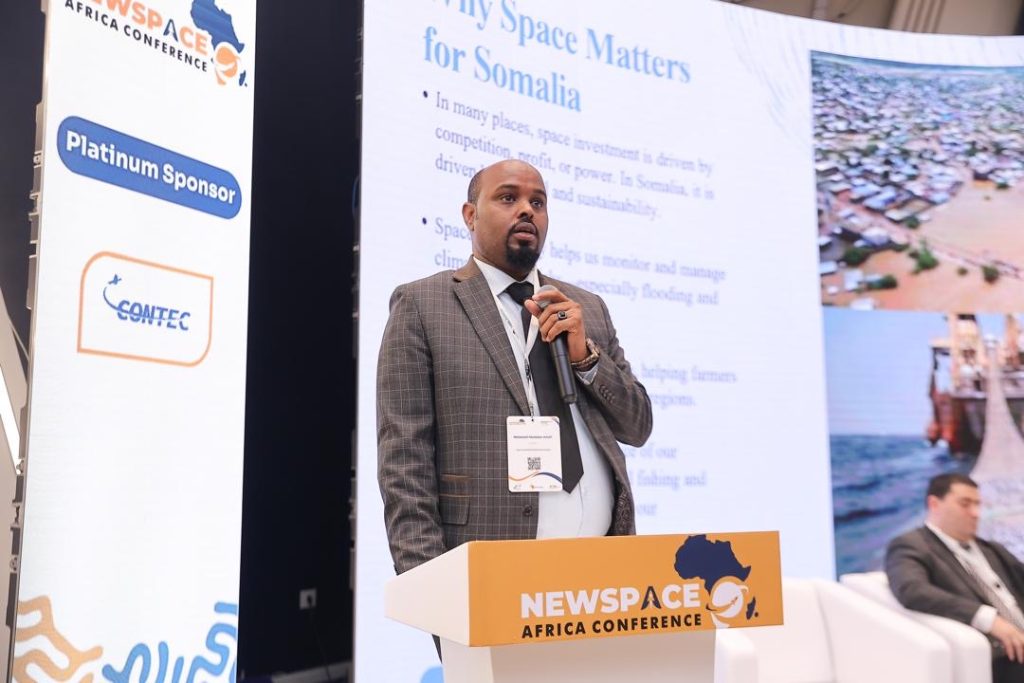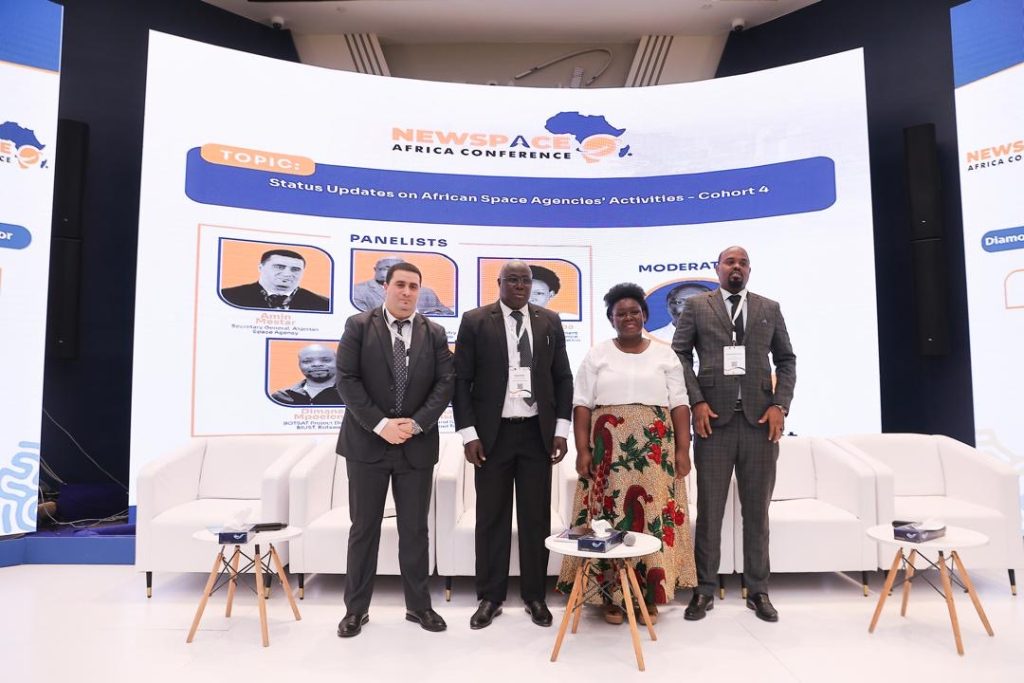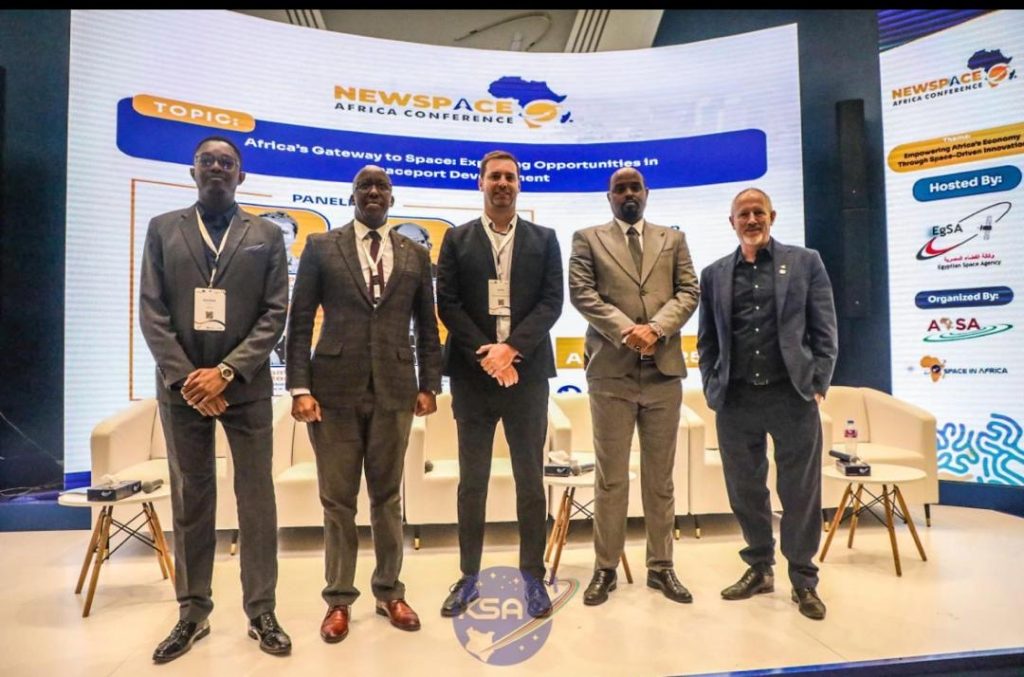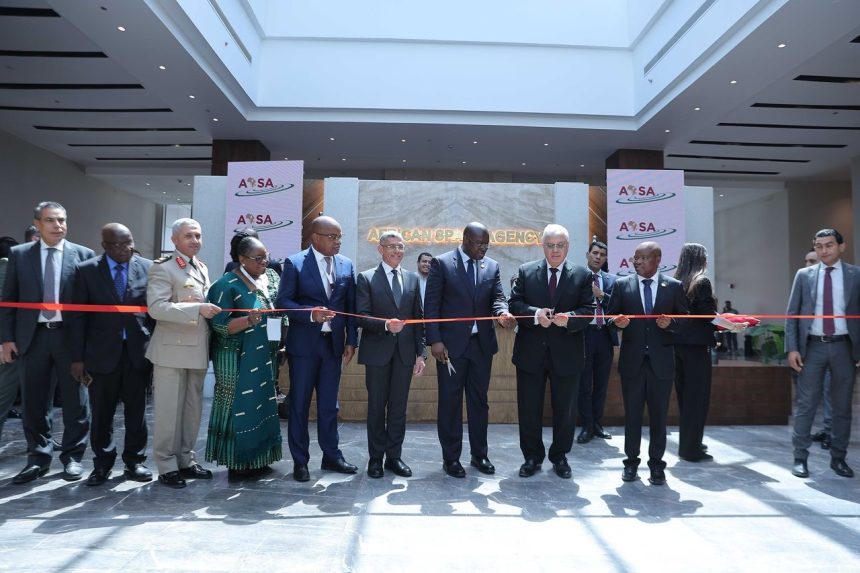Introduction
On 20th April 2025, a historic moment for Africa unfolded with the official inauguration of the African Space Agency (AfSA)during the NewSpace Africa Conference held in Cairo, Egypt. Dignitaries, ministers, ambassadors, and leading figures from across the world gathered to celebrate Africa’s leap into space leadership.
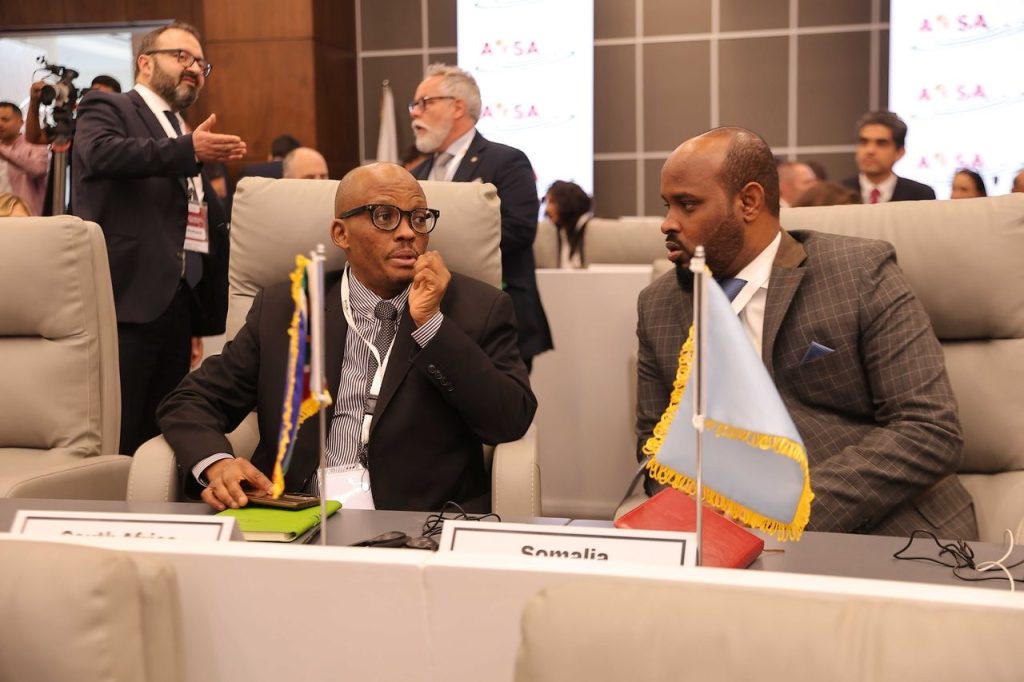
This ceremony solidified Africa’s commitment to space sovereignty, unity, innovation, and sustainable development, and it positioned AfSA as a core institution in Africa’s science, technology, and innovation future.
Somalia’s National Participation and High-Level Messages
Message from the President of Somalia
H.E. President Hassan Sheikh Mohamoud, President of the Federal Republic of Somalia, extended his warm greetings to all African nations on the occasion of the inauguration of the African Space Agency.
He congratulated:
• Dr. Tidiane Ouattara, President of the African Space Council, and the Council members for their vision and commitment.
• H.E. President Abdel Fattah El-Sisi, President of the Arab Republic of Egypt, for Egypt’s generous contribution in hosting AfSA’s headquarters, providing a permanent standard base for managing African space affairs.
The President highlighted this achievement as a milestone that will unite Africa’s aspirations toward space leadership.
Acknowledgment of National Leadership
The President also congratulated:
• The Prime Minister of Federal Republic of Somalia H.E, Hamza Abdi Barre and the Minister of Communication and Technology of Somalia for their efforts in initiating and developing Somalia’s national space program.
• Minister H.E, MP. Mohamed Adam Moalim Ali (Somali) Ministery of Communication and Technology), who sent the Director of Space and Satellite, Mr. Mohamed Abubakar Ismail, to officially represent Somalia at both the inauguration and the NewSpace Africa Conference.
Participation of Somalia’s Delegation
• The Somali Embassy of Egypt and Mr. Mohamed Abubakar Ismail, Director of Space and Satellite, participated actively in both the African Space Agency Inauguration and the NewSpace Africa Conference.
• The Minister of Communication and Technology further congratulated Dr. Temidayo Oniosun and his team at Space in Africa for their excellent organization of a high-standard international conference.
• The Minister assured that Somalia will continue to participate annually in future editions of NewSpace Africa.
High-Level Panel Participation
23 April 2025 – Panel on Status Updates of African Space Agencies (Cohort 4)
in the high-level panel alongside:
• Mr. Amin Mestar, Secretary General, Algerian Space Agency
• Prof. Frederic Ouattara, Former Minister, Ministry of Higher Education, Burkina Faso
• Dr. Doreen Agaba, Technical Lead, Department of Aeronautics and Space Science, STI Secretariat, Uganda
• Mr. Mohamed Abubakar Ismail, Director of Space and Satellite, Ministry of Communication and Technology, Somalia.
Mr. Ismail presented:
• Somalia’s National Space Program Vision
• Progress in developing Somalia’s basic space infrastructure
• Ongoing efforts in drafting the Somali Space Policy and Strategic Frameworks
• Plans for human capital development, training Somali engineers and scientists
• The strategic inclusion of Somali academic institutions in space research and innovation initiatives.
24 April 2025 – High-Level Panel Discussion: “Africa’s Gateway to Space: Exploring Opportunities in Spaceport Development”
The Director also participated in this panel moderated by Mr. Samuel Nyangi (Space in Africa), alongside:
• Brigadier Hillary Kipkosgey, Acting Director General, Kenya Space Agency
• Prof. Jean Pitot, Aerospace Engineer, Aerospace Systems Research Institute (ASRI)
• Mr Mohamed Abubakar Ismail, Director of Space and Satellite, Ministry of Communication and Technology, Somalia.
During the discussion, Mr. Ismail emphasized:
• The vision of developing a spaceport in Africa, including Somalia’s interest in such initiatives.
• The strategic importance of spaceport development for Africa’s autonomy and leadership in the global space economy.
• How enabling satellite launches from African soil will reduce costs, decrease dependency on foreign launch sites, and foster technological self-reliance across the continent.

